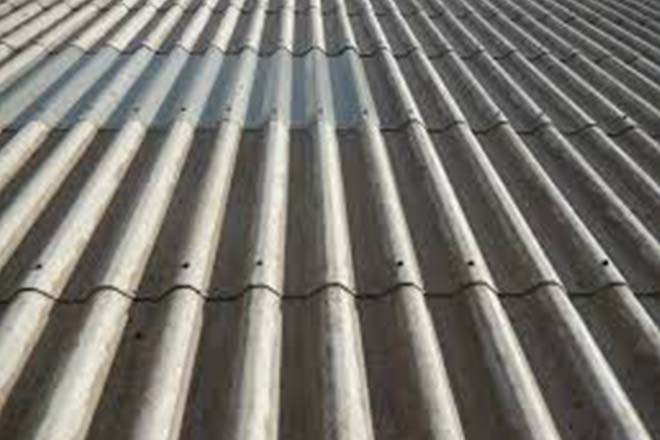- Annual value of Chrysotile roofing material used in Sri Lanka is 21.5 billion rupees (USD 146.8 million)
- Value of total stock of Chrysotile roofing inventory in Sri Lanka 395 billion rupees (USD2.7 billion)
- Value of existing capital investment: 8-16 billion rupees (US$55-110 million)
- New investment required to produce alternatives: 8-16 billion rupees (USD55-110 million)
- Loss of income and profits to the industry: 14.7 billion rupees (US$100 million)
- Loss of income earned by employees (direct and indirect): 17.9 billion rupees per annum (USD122 million)
- Loss to Customs and Inland Revenue: 858 million rupees (USD5.9 million)
Asbestos industry warns of economic, social and environmental impact from ban

June 29, 2017 (LBO) – Sri Lanka's Minister of Technology and Research said that he was awaiting reports regarding the safe use of Chrysotile, a type of asbestos from the Industrial Technology Institute (ITI), after he had been moved to research claims being made by industry players in the roofing sheet industry.
"Policymakers are working with the data available to them," Minister of Technology and Research Susil Premajayantha said. “There are times when someone can mislead policymakers."
He expressed these views at the launch of report titled ‘Socio Economic Impact of the Potential Ban on Chrysotile Fibre Roofing Products in Sri Lanka - Cost Evaluation’ which was compiled by private research firm, Research Intelligence Unit (RIU).
The RIU report says that in an international context, the countries that have banned Chrysotile are predominantly located in Europe and a few other parts of the industrialized world, where the average Gross Domestic Product is almost ten times higher than Sri Lanka.
Premajayantha added that he would look at generating further opinion on the matter. “Recently I met some of the business personnel involved with Chrysotile roofing sheets regarding the ban."
“After that I referred the matter to ITI, and am awaiting the reports. I can also direct one of our scientific research institutions to look at the available data to submit another report on this issue.”
The government has said that a partial ban on asbestos will be imposed in 2018 by controlling its import and use of it will be banned from 2024.
The new report presents an analytical consideration of the direct costs of a potential ban based on several methods of calculation that use available government data.
Based on the statistical model the following direct costs have been presented;
